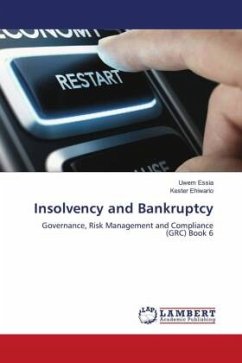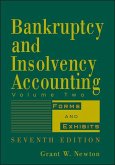Corporate debt restructurings in the emerging markets have always presented special challenges. Today, as the global economy emerges from the COVID-19 pandemic and businesses look to pick up the pieces, this is even more true. For many, the financial hangover of the lockdowns and market disruptions linger and threaten their independence, even their survival. This peril is more acute in the emerging and frontier markets. Weaker economic fundamentals and institutional resiliency often intensify the challenge to return to pre-COVID-19 operating levels and financial sustainability. In this context, borrowers invariably must address the imbalance of substantial existing debt with the "new reality" of their business operations and revenues.
This book, using case studies, presents a full, detailed narrative of a fictitious troubled bank in an emerging market, with characters, dialogues, and negotiations. It also includes a series of discussion questions with suggested answers, to draw out key issues from the case. In doing so, this initial narrative offers a substantive analysis of the five main phases and principles of a restructuring: (1) pre-restructuring, (2) the decision to restructure, (3) the case set-up, (4) structuring and negotiation, and lastly (5) implementation. In each chapter, the book outlines the main elements of the phases and shows how the elements are applied in practice. The book also presents separate chapters on exogenous shocks (with a focus on the COVID-19 pandemic as an example of such shocks), macroeconomics, and legal issues present in cross-border restructurings. It will be of interest to the international professional financial and legal community, primarily junior-to mid-level financiers, business people, and lawyers.
This book, using case studies, presents a full, detailed narrative of a fictitious troubled bank in an emerging market, with characters, dialogues, and negotiations. It also includes a series of discussion questions with suggested answers, to draw out key issues from the case. In doing so, this initial narrative offers a substantive analysis of the five main phases and principles of a restructuring: (1) pre-restructuring, (2) the decision to restructure, (3) the case set-up, (4) structuring and negotiation, and lastly (5) implementation. In each chapter, the book outlines the main elements of the phases and shows how the elements are applied in practice. The book also presents separate chapters on exogenous shocks (with a focus on the COVID-19 pandemic as an example of such shocks), macroeconomics, and legal issues present in cross-border restructurings. It will be of interest to the international professional financial and legal community, primarily junior-to mid-level financiers, business people, and lawyers.








